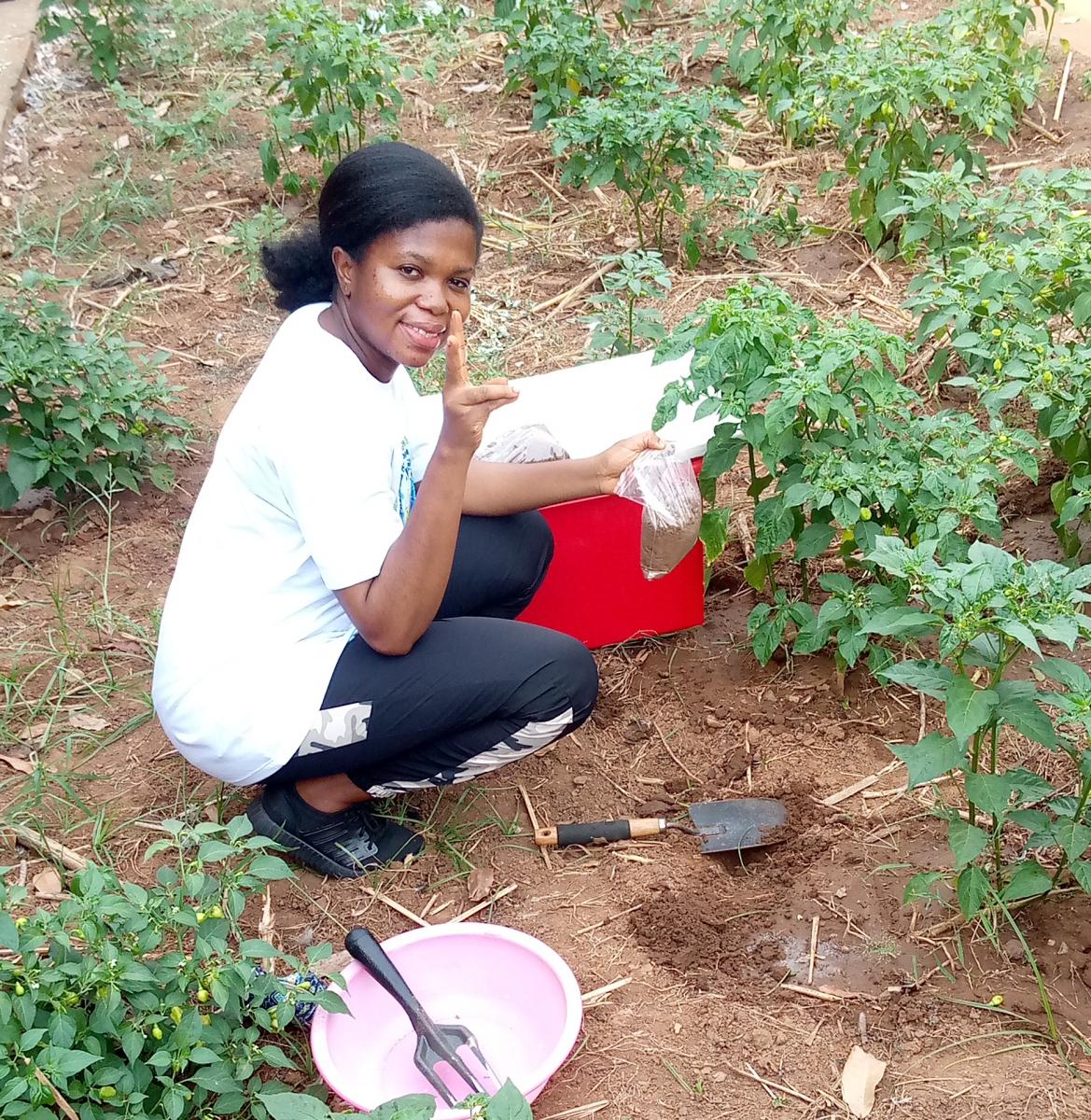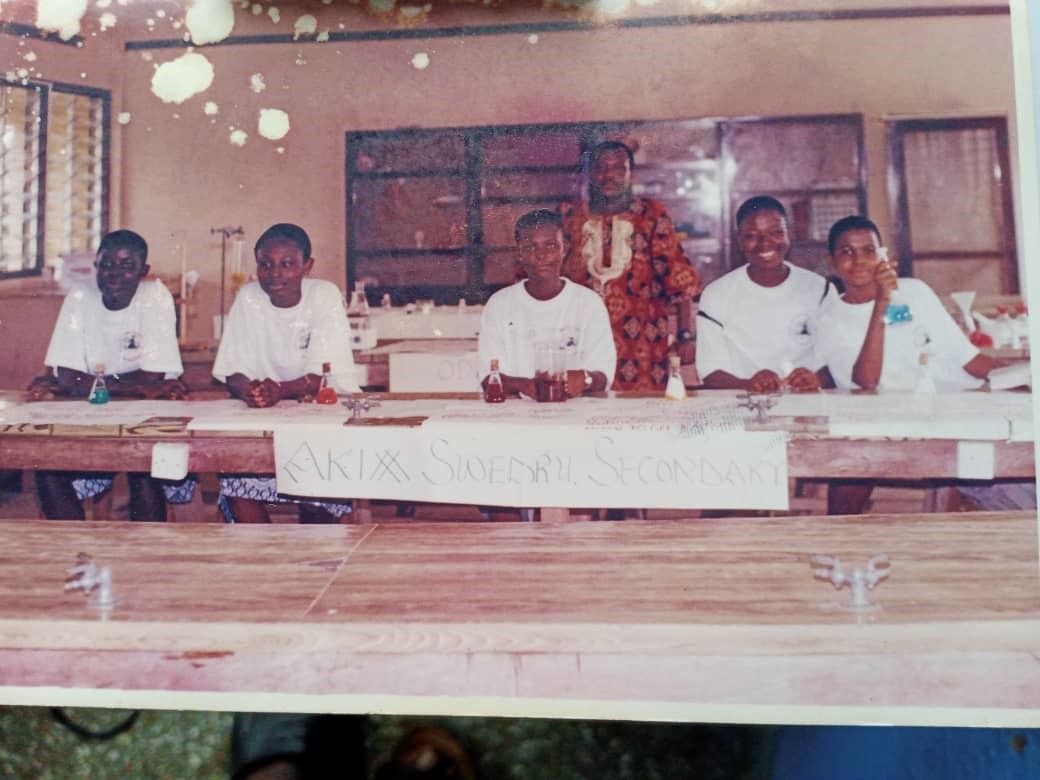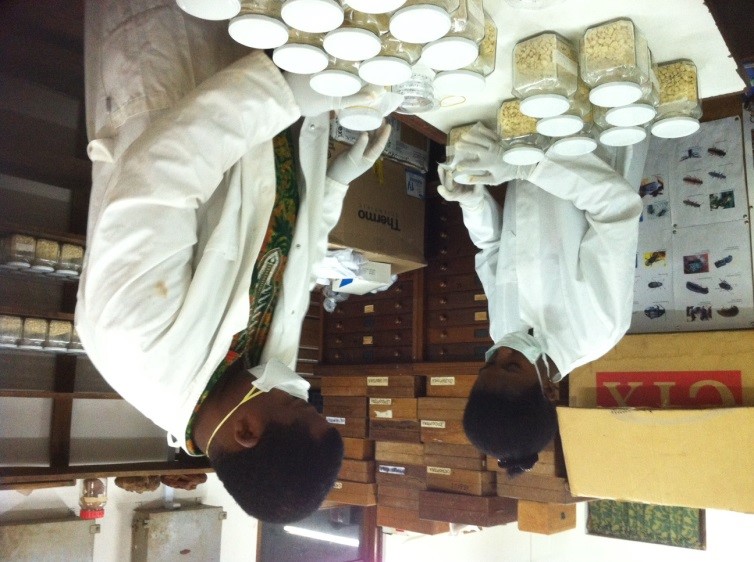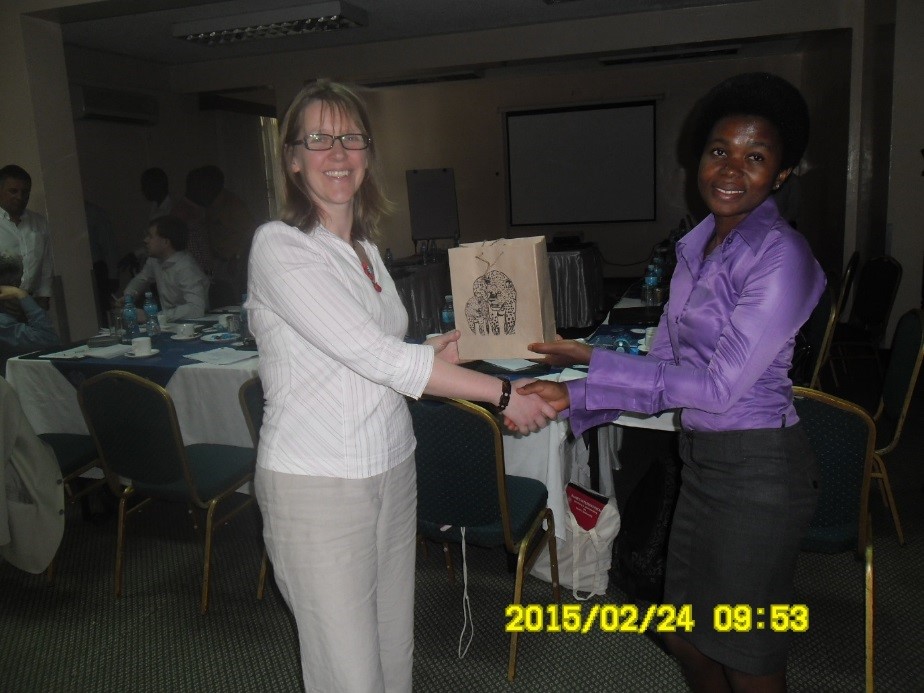Mavis Agyeiwaa Acheampong
Agricultural Sciences
An Early Career fellow developing a "one-stop" solution for Ghana's chili pepper farmers
Just give me the seed and I will continue.


“One-stop control.” This is what entomopathologist Mavis Acheampong hopes to achieve through her work to develop a native, natural solution to help chili pepper farmers in Ghana defend against crop loss. Chili pepper is both widely consumed within Ghana as well as being one of its major exports, supporting over 900,000 producers within the country. But insect pests like the false codling moth, and diseases including mosaic diseases and Phytophthora blight, can cause up to 60–100% losses in crop yield. Common chemical pesticides used to control insect pests create health and environmental risks and are often strictly controlled by the EU, one of Ghana’s most important export markets. Growers are increasingly turning to biological control methods as part of an integrated pest management (IPM) strategy. These methods have included plant extracts and fluorescent bacteria – and now, Mavis hopes to add a new one to the mix: fungi. Entomopathogenic fungi (EPF) are microscopic fungi that grow in the soil and can infect insect pests through penetration of the cuticle (exoskeleton). “Unlike their counterparts, bacteria and viruses, the insect does not need to ingest the fungus,” Mavis explains. “Once they come in contact with the fungus and humidity and environmental conditions are correct, the fungus germinates and penetrates.”
Mavis has already been involved with a project that showed certain EPF to be effective against some stored insect pests in Ghana; but the fungi used in that experiment were isolated in the UK and commercialized by foreign companies, making it difficult and costly for Ghanaian farmers to access. Under her research project funded by the OWSD Early Career fellowship, Mavis will extract local isolates that can be used for the same purpose: “We have it in our soils – why not use it?” The EPF will not work alone, she explains, but in synchrony with the bacteria and plant extracts already known to be effective against other chili pepper diseases. “I want to combine these into one formulation able to control insects and diseases of chili peppers” – a single product farmers can easily apply to their crops.
 Mavis has been ambitious for as long as she can remember. The first of 3 children, she lost her mother when she was 6 years old. Her father, an account clerk, worked hard to make sure she and her brothers had the fees they needed to attend primary school. In her hometown of Akim Oda, Mavis became recognizable as much for her cleverness as for her small stature: “Because I was tiny and intelligent, everybody knew me.” Always first in her class and in schoolwide science competitions, only one student came close to rivaling her – her classmate and now-husband, Cosmos Owusu Afram. “Sometimes he would be first. He likes to tell me that he was always first, but I tell him it’s not true…I remember very well.”
Mavis has been ambitious for as long as she can remember. The first of 3 children, she lost her mother when she was 6 years old. Her father, an account clerk, worked hard to make sure she and her brothers had the fees they needed to attend primary school. In her hometown of Akim Oda, Mavis became recognizable as much for her cleverness as for her small stature: “Because I was tiny and intelligent, everybody knew me.” Always first in her class and in schoolwide science competitions, only one student came close to rivaling her – her classmate and now-husband, Cosmos Owusu Afram. “Sometimes he would be first. He likes to tell me that he was always first, but I tell him it’s not true…I remember very well.”
When it came time to choose a faculty as an undergraduate, Mavis knew she was leaning towards biological sciences but was having trouble narrowing it down. Her uncle, with whom she was living in Accra while she attended the University of Ghana, suggested dentistry, but Mavis wasn’t convinced. His second suggestion, agricultural sciences, was more appealing, but still left many concentrations to choose from—animal science, soil science, crop science, agricultural engineering, agricultural economics, and so on. At first, an enthusiastic animal science lecturer captured her interest. “She was very vivacious, very inspiring, so I wanted to do animal science…but I was afraid of animals! I couldn’t handle the practical aspect.”
Instead, Mavis gravitated toward crop science. After she received her bachelor’s degree, she worked for a year and a half as a school teacher and then for a Canadian fertiliser company, BEST. She saved every penny she earned, her mind set on going back to school for her Master’s degree. While she had received help from her uncles to fund her undergraduate studies, as is common in Ghana, she was determined to support herself through her Master’s. She had enough saved for the fees, but with nothing leftover. “I had to sleep in the lab for one whole year…every day and night.” she says. 
With a school bag packed with four pairs of jeans and a few other clothes and necessities, she made her bed on a bench in the plant pathology lab. Her lecturers (now colleagues) admired her work ethic – always the first to show up in the morning and the last to leave – but didn’t realize the full extent of her dedication. She ate one meal a day, often a plate of plantains and red red, a stew of black eyed peas to which she added gari (cassava root flour) to fill her stomach longer. Her now-husband delivered her the food, timing his visits for 3:00 in the afternoon so the meal would sustain her through the night and the following day.
Finally, at the end of the first year of her Master’s programme, Mavis caught a break. A fungus called called Beauveria bassiana, first isolated in the UK as an insect pathogen, needed to be tested in Ghana and Mavis became involved in the project to test it. This supplied her with a stipend for basic living expenses, allowing her to move out of the lab and into a student hostel. B. bassiana was being evaluated for its effectiveness in infecting – and thereby controlling – the larger grain borer Prostephanus truncatus, an insect that is responsible for a huge amount of postharvest loss in maize and cassava, two of Ghana’s most important food crops. Mavis’s results found that the fungus was highly effective as a pest control agent against the insect. She was invited to present her results in Germany at a meeting of the Society for Invertebrate Pathology, where she first met Sean Moore, an entomologist at the organization Citrus Research International in South Africa. When Mavis mentioned she was looking for a place to do her PhD, Moore, impressed by Mavis’s presentation, seized the opportunity instantly. “Would you like to work with us?” he offered. “I will get you a PhD.”
 Moore connected Mavis with his colleague, entomologist Martin Hill at Rhodes University, where he runs one of the leading labs in integrated pest management in South Africa. Under his supervision, Mavis joined the
Moore connected Mavis with his colleague, entomologist Martin Hill at Rhodes University, where he runs one of the leading labs in integrated pest management in South Africa. Under his supervision, Mavis joined the research effort to develop a fungal pesticide to control citrus fruit pests. The lab had already isolated fungal compounds that worked against soil-dwelling insects. Mavis’s task was to identify certain characteristics of different isolates of the fungus, such as their temperature and humidity tolerance and UV sensitivity, to identify isolates that could be effective against arboreal insects as well. She published the successful results of her PhD research in top journals and submitted her thesis for review – and then waited. And waited. Bureaucratic delays were further prolonged by the COVID-19 pandemic, and despite submitting her thesis in 2018 it wasn’t until April 2020 that she finally received her PhD certificate. She even spent another brief spell sleeping in the autoclave room at the university before she eventually returned to Ghana to wait. In December 2020, she was finally able to start her current position as Lecturer in the Department of Crop Science at the University of Ghana.
It may have not been an easy path to reach where she is today, but Mavis’s resilience and her religious faith carried her through, and her determination continues to serve her. “I’m a very tough person,” she says. “I’m not the type who wants you to help me forever. Just give me the seed and I will continue.”
Note from Mavis:
“I am grateful to God, my husband, dad, uncles, and the following mentors: Dr. Eric Cornelius, Dr. Belinda Luke, Dr. Victor Clottey, Prof. Martin Hill, Prof Sean Moore, Dr. Candice Coombes, Prof. Drauzio Rangel, Dr. Aram Mikaelyan and OWSD for their tremendous support.”











































